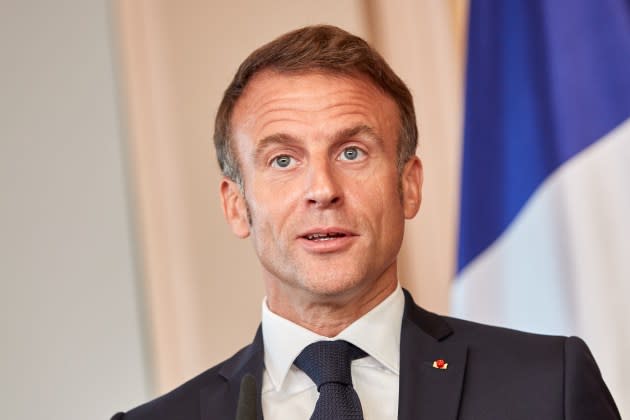France’s Far-Right Party Gains Historic Ground in European Vote; Prompts French President Emmanuel Macron to Call Early Parliamentary Elections

The French far-right party Rassemblement National (National Rally, or RN) made historical gains on June 9, dominating the European elections by a landslide with 31.5% of votes.
Fronted by the Rassemblement National’s 28 year-old lead candidate Jordan Bardella, the victory prompted French President Emmanuel Macron — whose party Renaissance came in second with 14.5% of votes — to dissolve the National Assembly and call early Parliamentary elections. These will take place in two rounds, on June 30 and July 7, less than a month before the start of the Olympic Games in Paris.
More from Variety
Perceived as a poker move by insiders, these snap elections could lead to seeing the Rassemblement National win the majority within the National Assembly and subsequently obligate Macron to cohabit with a prime minister belonging to the far right, most likely Bardella. Macron appears to be following the footsteps of Jacques Chirac, the right-wing former president, who dissolved the National Assembly in 1997 and called snap elections. After the socialist party won the majority, Chirac had to cohabitate with Socialist prime minister Lionel Jospin for five years.
Announcing his decision to dissolve the National Assembly in a televised address, Macron said it was an “act of trust. In the capacity of French people to make the best choice of itself and for future generations. Trust in our democracy. Trust in France which, when faced with difficult times, has been able to unite and resist, to draw a future, avoid withdrawing into itself and not giving in to demagogy.”
Although Macron beat Rassemblement National leader Marine Le Pen during the last two presidential elections, in 2017 and in 2022, the French far-right party has never been closer to entering the government. The country has been on its highest security alert for the last several months, fueling fears and anti-immigration rhetorics.
The European elections took part across the 27 member states of the European Union and have determined the 720 members of the European Parliament for a duration of five years.
Best of Variety
Sign up for Variety’s Newsletter. For the latest news, follow us on Facebook, Twitter, and Instagram.

